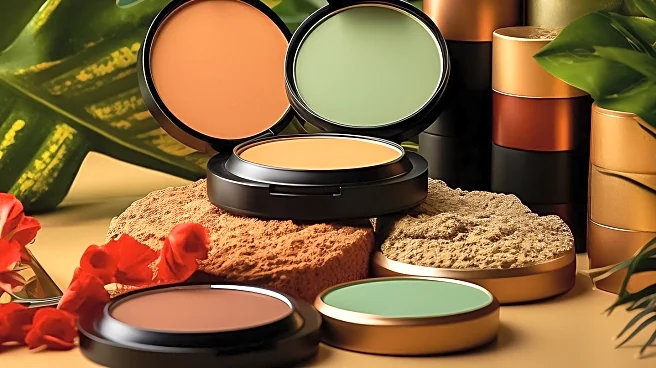What is the story about?
What's Happening?
September marks Self-Care Awareness Month, prompting discussions on the evolving concept of self-care. The focus has shifted from superficial practices like baths and masks to deeper, more meaningful activities such as therapy and personal well-being. Dr. Anna Malaika Tubbs, author of 'Erased: What American Patriarchy Has Hidden from Us,' emphasizes that self-care is inherently political. She argues that self-love and confidence can have a ripple effect, benefiting communities and challenging societal norms. In this context, Black-owned beauty brands are gaining attention for their role in promoting self-care. Brands like Lautir Beauty, Deon Libra, and Octavia Morgan offer products that cater to sensitive skin and promote wellness, aligning with the broader ethos of self-care as a form of resistance.
Why It's Important?
The emphasis on self-care as a political act underscores the importance of personal empowerment in challenging systemic issues. By supporting Black-owned beauty brands, consumers are not only investing in quality products but also contributing to economic empowerment within marginalized communities. This shift highlights a growing awareness of the intersection between consumer choices and social justice. The focus on self-care as a means of resistance also reflects broader societal trends towards inclusivity and diversity in the beauty industry. As these brands gain prominence, they challenge traditional beauty standards and offer alternatives that resonate with a diverse consumer base.
What's Next?
As the conversation around self-care continues to evolve, it is likely that more consumers will seek out brands that align with their values. This could lead to increased visibility and market share for Black-owned beauty brands. Additionally, the emphasis on self-care as a political act may inspire other industries to consider the social impact of their products and practices. The beauty industry, in particular, may see a continued push towards inclusivity and representation, with brands expanding their offerings to cater to a wider range of skin types and tones.
Beyond the Headlines
The rise of Black-owned beauty brands as champions of self-care highlights a broader cultural shift towards valuing authenticity and diversity. This movement challenges the traditional beauty narrative and encourages consumers to consider the ethical implications of their purchasing decisions. It also raises questions about the role of consumerism in social change, prompting discussions on how individuals can use their buying power to support causes they believe in. As these brands continue to grow, they may also influence mainstream beauty standards, promoting a more inclusive and representative industry.
















